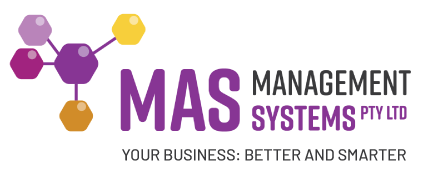How to ask good questions
 Many of us can spend large chunks of our day seeking information.
Many of us can spend large chunks of our day seeking information.
Whether it’s an update from a team member, negotiations with a contractor or trying to get more than an ‘ugh’ from a teenager, we usually do this by asking questions.
Asking questions fuels learning, improves interpersonal bonding and rapport plus it makes us more likeable! Questioning naturally improves our emotional intelligence which can make us better questioners. It’s also a critical part of being a good auditor and manager.
Quality guru W. Edwards Deming said, “If you do not know how to ask the right question, you discover nothing”.
Let’s explore how to frame questions to get the information you need without it sounding like an inquisition.
Why are you asking?
Whether it’s in a meeting or as part of an internal audit, it’s important to have a plan. Outline your intentions or goals for the activity you’re going into and jot down a series of questions or cues you can use to achieve your outcome.
By following general, open questions with more specific follow up questions, you’ll be able to drill down into the specifics and get the information you’re seeking. Consider building a hierarchy of questions that begin with a big picture and then get more specific.
By knowing what kind of information, you’re looking for and framing your questions towards that goal, you’ll be more likely to walk away with what you need.
Speak their language
Jargon is fine if the person you’re speaking to is in your industry. Asking someone in a lab about POVA requirements could be perfectly acceptable if they work in a Chemistry or Medical lab. Using the same acronym when negotiating for stationery supplies will lead to confusion.
If the person you’re speaking to doesn’t seem to understand what you’re asking, try to rephrase the question.
Do keep your audience in mind. If English isn’t their first language (or yours), you could find that asking shorter more specific questions that cover a single point is the best option.
Stay on track
In general conversation, meandering from one topic to the next is expected.
In a business environment, you should aim to transition from one question to the next in a natural way. Use something in the answer to structure your next question. This also shows that you’re listening, not just ticking off a list.
And remember, don’t interrupt. Wait until the person has answered fully before moving on.
If you’re under a time constraint, explain this up front so they don’t feel like they’re being brushed off or dismissed. Similarly, be respectful of the other person’s time and stick to any time commitments you’ve made. If it looks as though you need additional time, ask if the meeting can be extended or arrange a second meeting.
Questioning techniques
If you’ve ever been in an audit or carried out one yourself, you’ll know about questioning techniques.
Remember to use neutral wording when phrasing your questions. For instance, asking “How do you like that fantastic new piece of equipment?” is unlikely to get you anything other than a positive response, even if the person feels negatively towards it. “What do you think of that new piece of equipment?” is much more helpful and likely to gain an honest answer.
There are different types of questions you can use to get the information you need.
Closed questions usually invite ‘yes’, ‘no’ or ‘maybe’ responses. They’re useful for getting a quick response and in an audit situation, can help to keep the process moving. “Can I see Dave’s training records?” is clear, specific, and focussed.
 Open questions invite more information. They need a little more thought and encourage a more elaborate response. These are questions that begin with what, where, when and how and should tell you more about the person or topic you’re interested in.
Open questions invite more information. They need a little more thought and encourage a more elaborate response. These are questions that begin with what, where, when and how and should tell you more about the person or topic you’re interested in.
These are (or should be!) the most common types of questions used in an audit.
They can be used to build rapport and break the ice with the person you’re speaking to. Asking how their day is going or how they spent their weekend should settle them down a bit and make them feel more comfortable.
Think about what a funnel looks like – wide at the top and narrow at the bottom. This is what funnelling questions are all about.
The first question or two opens the door and gets the other person talking. The next questions are more specific, drilling down to the issue you’re trying to address.
Funnelling questions are most useful when you’re trying to get to the bottom of a particular issue, problem or even a conflict. It can help the respondent to home in on points relating to a specific issue. Use this method to get out of argument mode and into productive dialogue.
Probing questions can clarify and drill down into a subject. They can help you get more detail but can also clear up any doubts or misunderstandings. Directly asking, “What exactly is the current situation?” should get you the answer you need without hedging.
Don’t hesitate to use clarifying questions. “Just to confirm…”, “Before we move on, let me check this…”, and “I want to be sure that I understood…” are examples of how these can be used.
By verifying what you’ve heard there and then, you can avoid possible misunderstandings later. Plus, the person you’re questioning will understand that you want to present their responses in a fair and accurate manner.
A few questions to avoid
Irrelevant questions can be very confusing. In an audit situation it can also make the auditee extremely uncomfortable. Asking about how they use of a piece of equipment makes perfect sense – asking how much the company paid for it does not.
Be careful when asking questions beginning with who or why. ‘Who’ questions could lead to finger pointing. And depending on your tone, ‘why’ questions could sound accusatory.
And finally, think carefully before using these statements, particularly in an audit:
“With all due respect…” (a sure indicator of something disrespectful ahead)
“I’m not having a go at you but…” (you probably are)
“Don’t take this personally but…” (they probably will)
Need some help?
We’re pretty skilled at asking the right questions at the right time to the right people, and listening to the answers.
If you’d like some help with questioning, auditing, or management system support, contact Maree on 0411 540 709, use our contact form or email info@masmanagementsystems.com.au
You don’t have to do this alone!
Download the article Asking good questions
You can also check out our detailed guide about ISO 17025.






